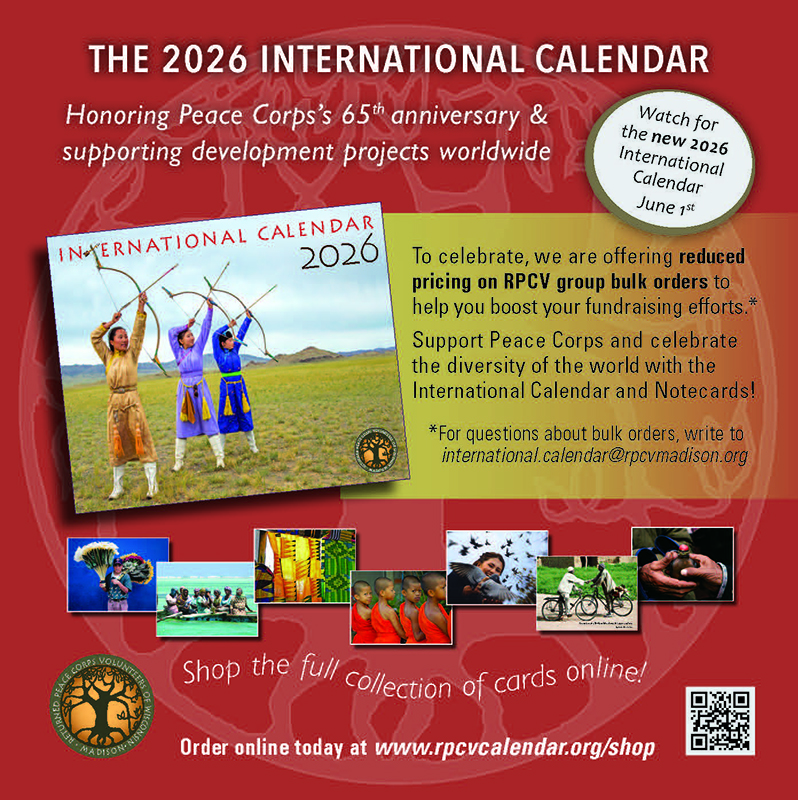
Grad School Admissions: References
Personal references are a crucial element of graduate school applications, offering external validation of the skills, character, and dedication developed during your service. While your resume and personal statement provide a narrative of your achievements and aspirations, personal references bring credibility and depth to your application by providing insights from those who have directly observed your work and growth. References from Peace Corps supervisors, colleagues, or community partners can speak to your adaptability, resilience, cross-cultural communication skills, and commitment to service—qualities that are often highly valued in graduate programs. These testimonials help admissions committees understand the real-world impact of your experiences and how they have prepared you for advanced study. For RPCVs, strong personal references can be especially impactful, as they provide a nuanced perspective that connects your past experiences with your future academic and professional goals, enhancing your overall candidacy.
WorldView asked university admissions leaders for their hot tips on how to choose the best references and ensure that their support helps improve your chances of admission.
Hot Tip #1
The best references come from those who know you well, for example a direct supervisor. A big title is less impressive than someone who can explain in some detail how you contributed to a team or project, or as a manager, supervisor or mentor.
Think about choosing references who can round out your application. Are there areas not evident in the rest of your application that your references could uniquely round out? This may be leadership, mentorship, teamwork, perseverance, overcoming adversity. Your application documents should tell as complete a story as possible and the references are a key part of that.
Help your references give you the best letters possible! Give them enough time to write them, including clear instructions on how and when to submit, and any guidance of areas you’d like them to cover. For example if leadership is an area you’d like to highlight in your application, choose a reference who can and will talk about that. Share a copy of your resume along with a reminder of what you did when working or studying with them.
—Jill Stoffers, Senior Director of Institutional Partnerships, Middlebury Institute of International Studies at Monterey
Hot Tip #2
Depth of relationship: You should request references from people who know you well professionally and can attest to your work ethic, qualifications, and character. More specifically, it should be someone who knows about your success and challenges, achievements, and has a positive perspective of you professionally and as a person.
Variety: It can be a past professor, supervisor, manager but it should not include family members and friends.
Prepping references ahead of time: Contact your reference early in the application process. If the response is yes, share with them your CV/resume, information about the program, and deadline for their submission.
Note: Thank your recommenders for their continued support. If possible, let them know the outcome of your application.
—Renata Ximenes, Assistant Director, Graduate Admissions and Recruiting, Indiana University
Hot Tip #3
Choose recommenders who have worked directly with you and can provide meaningful insight into your abilities. Use letters to explain gaps, like poor grades, by offering context or demonstrating growth. If you lack work experience, ask an internship supervisor to highlight your work ethic and deliverables. Ensure your letters provide information that isn’t already in your application.
—Stephanie Worden, Assistant Dean for Enrollment, Marketing and Communications, Josef Korbel School of International Studies, University of Denver
Hot Tip #4
References are an effective way to have those around you, who know your work ethic, and can speak specifically regarding why you would be a good fit for graduate education. One of the best suggestions I can give regarding your references is to ask ahead of time. Before you begin the application process, it is a good idea to get in touch with individuals who you have good current and active relationships with to see if they are available to write you a recommendation. This will help you get the most detailed and effective references in a timely manner for your application. Ensure that you have a backup recommender you can ask if your top choices are unable to write you recommendations in the specific timeline. Your references should be detailed and specific to the program you are currently applying to, so if you are changing your field of study, make sure you provide that information.
—Tereza Lopez, Assistant Director, Graduate Recruitment, Clark University
Related Articles

The University Pipeline
In the midst of budget cuts, Peace Corps announces its annual rankings of top Peace Corps-producing schools, with the University…

Seton Hall School of Diplomacy and International Relations
The School of Diplomacy and International Relations at Seton Hall University is strategically located, with classes offered on our campus…

Yale Jackson School of Global Affairs
RPCVs are at home at the Yale Jackson School of Global Affairs, with a rich cohort of students and alumni…

Western Illinois University Institute for Rural Affairs
For 30 years we’ve been investing in our students and their future through specialized courses, hands-on internships, and ongoing personal…





